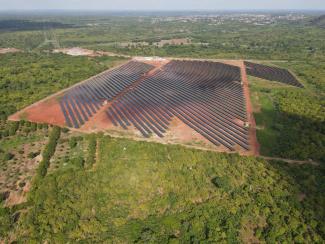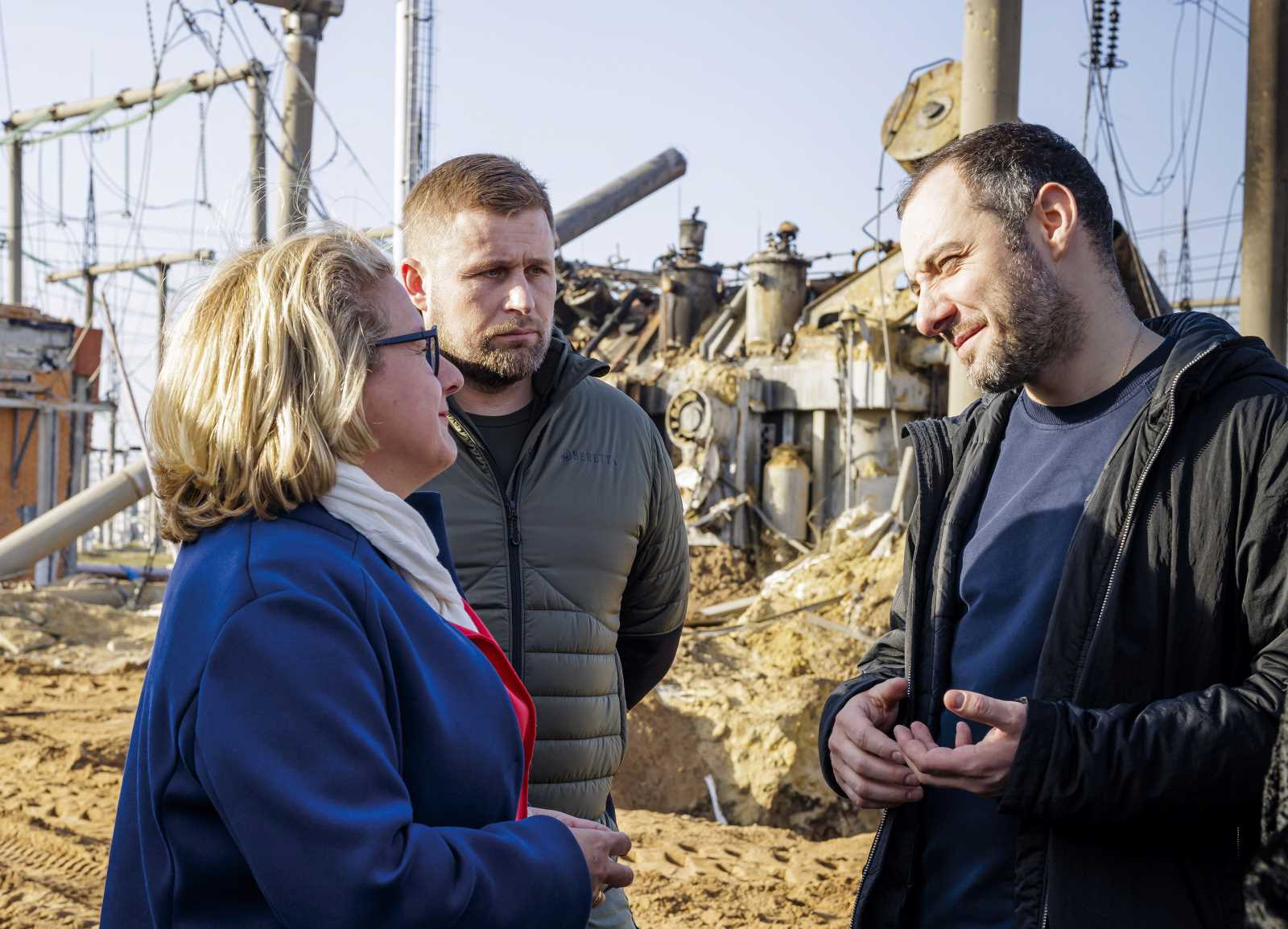KfW
Solar modules gleam in the bright African sun

During the rainy season, the green of mango trees, shrubs and fields extends as far as the eye can see. Amidst the lush vegetation of West Africa, there is also a flash of silver in the sunlight: almost 70,000 solar modules are producing sustainable energy over a large area. In Boundiali in northern Côte d’Ivoire, the country’s first solar power plant has been providing up to 37 megawatts of electricity since June 2023. This clean energy can supply 35,000 households. Around 150,000 people are benefiting. The new plant will save 35,000 tonnes of greenhouse gas emissions per year – an important contribution to climate protection.
The solar power plant is considered a pilot project for the expansion of solar energy in Côte d’Ivoire. The project is an important contribution to the fight against climate change and a decisive step towards raising the share of renewable energy in the country’s power supply to 45 % by 2030. KfW Development Bank is providing EUR 37 million in financing, of which EUR 27 million is being given on behalf of Germany’s federal government and EUR 10 million on behalf of the European Union. Côte d’Ivoire is contributing an additional EUR 5 million from its own budget.
To date, gas is still Côte d’Ivoire’s most important energy source, making up over 60 % of its power supply. Hydropower already delivers over 30 % of the country’s electricity. Expanding solar power should help increase its share of the power mix. “There are already plans to expand the power plant,” emphasises KfW project manager Clara Winkler-Tomety. Germany’s federal government has already committed another EUR 30 million via KfW in order to increase capacity to 83 megawatts.
The “just transition” principle is being strictly adhered to during implementation of the project in order to avoid social hardships for local people. For example, landowners who own property and cropland on the project site were compensated. Some farmers were able to use the money to acquire equipment to better cultivate their remaining fields. There was a complaint office that people could turn to if they felt they had been treated unfairly, but it received only four appeals, which were amicably resolved. “We also made an effort to create jobs for local people,” Winkler-Tomety stresses. During the construction phase, 75 % of the labour force came from the region.
The new solar power plant in Côte d’Ivoire is helping to achieve the goals of German development cooperation with regard to expanding renewable energy. “The idea is to promote a climate-friendly power grid in West Africa,” explains Winkler-Tomety. According to her, the programme’s goal for the region is to enable private households, public institutions and corporations to purchase electricity under environmentally and climate-friendly, secure and cost-effective conditions.
Cooperation with Côte d’Ivoire should be strengthened further within a “climate and development partnership”. The aim is to support the transition to more renewables in the West African country and to expand its role as a net electricity exporter to improve supply security in the region.
Michael Ruffert
Link
KfW, 2023: Shaping a sustainable and fair global energy transition.







